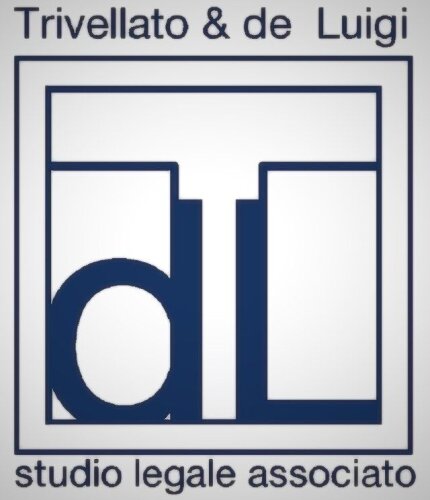Best Child Custody Lawyers in Venice
Share your needs with us, get contacted by law firms.
Free. Takes 2 min.
Free Guide to Hiring a Family Lawyer
List of the best lawyers in Venice, Italy
About Child Custody Law in Venice, Italy
Child custody law in Venice, Italy, is governed by the broader provisions of Italian family law. The legal system prioritizes the welfare and best interests of the child when determining custody arrangements, whether in cases of divorce, separation, or disputes between unmarried parents. The law encourages parental responsibility (responsabilità genitoriale) and emphasizes the child's right to maintain a relationship with both parents whenever possible. Courts in Venice typically seek to foster shared custody arrangements, unless circumstances indicate that one parent is unfit or that such arrangements would not benefit the child.
Why You May Need a Lawyer
Seeking professional legal advice or representation is highly recommended in child custody cases for various reasons. The Italian legal process can be complex and emotionally challenging, especially during times of family change. You may need a lawyer if:
- You are going through separation, divorce, or the end of a partnership and need to formalize child custody
- There is disagreement between parents about custody, visitation, or living arrangements for the child
- One parent intends to relocate with the child, either within Italy or abroad
- Concerns exist regarding domestic violence, abuse, or neglect
- You need assistance regarding international custody disputes (for example, issues relating to the Hague Convention on child abduction)
- The other parent is not compliant with existing custody or visitation orders
- You wish to modify an existing court order regarding custody or visitation
Local Laws Overview
Italian child custody laws are set out primarily in the Civil Code and reflect principles common throughout the country, including Venice. Key aspects to be aware of include:
- Parental Responsibility: Both parents generally retain equal parental responsibility after separation or divorce, unless the court decides otherwise for the child's best interest.
- Types of Custody: The most common arrangement is affido condiviso (joint custody), where both parents share decision-making responsibilities. Sole custody (affido esclusivo) is possible in exceptional cases when joint custody is deemed not to serve the child's well-being.
- Residence: The child's primary residence is decided considering the child's needs, school, and family environment. Parental agreements are encouraged but must be approved by the court.
- Visitation: Non-custodial parents typically retain visitation rights, and the court will establish a schedule if parents cannot agree.
- Child Support: The non-residential parent may be ordered to pay child support, based on the child's needs and parental income/capacity.
- International Aspects: Venice observes Italy's commitments to international treaties such as the Hague Convention, which addresses cross-border child custody and abduction.
Frequently Asked Questions
What is the difference between joint and sole custody in Venice, Italy?
Joint custody (affido condiviso) means both parents share decision-making about the child’s upbringing, even if the child mainly lives with one parent. Sole custody (affido esclusivo) gives one parent exclusive authority, usually in cases involving serious issues with the other parent.
How do courts decide who gets child custody?
Courts in Venice consider the child's best interests, evaluating the parent's ability to care for the child, the emotional ties, the child's needs, and the family situation. The aim is to ensure continuity and stability for the child.
Can a child’s preference be considered in custody decisions?
Yes, once a child reaches an age and maturity where their opinion can be reasonably assessed (generally 12 years or older), the court may consider their views, though the final decision rests on their best interests.
Is shared custody always granted?
Shared custody is favored by Italian law, but exceptions exist, such as where one parent poses a risk to the child’s welfare or is incapable of exercising parental responsibilities.
What happens if one parent wants to move abroad with the child?
A parent wishing to relocate must obtain consent from the other parent and approval from the court if the move affects custody or visitation. Unauthorized relocation can have legal consequences and may breach international conventions against child abduction.
How is child support determined in Venice?
Child support is set based on the child’s needs, the standard of living prior to separation, and each parent's income and financial capability. The court will issue a payment order enforceable by law.
What if parents agree on custody arrangements?
If both parents reach an agreement, they can formalize it and present it to the court for approval. The judge will ensure the arrangement protects the child’s welfare before ratifying it.
How can a custody order be changed?
Either parent can request a modification of the custody arrangement if there has been a significant change in circumstances, such as relocation, changes in employment, or new information regarding the child’s needs.
What legal remedies exist if a parent violates custody or visitation orders?
If a parent disobeys a court order, legal recourse includes enforcement measures, fines, or in severe cases, changes to the custody arrangement. Legal assistance is advisable to ensure compliance.
Do unmarried parents have the same rights as married parents?
Yes, once parentage is legally recognized, unmarried parents have the same rights and responsibilities regarding custody and visitation as married parents under Italian law.
Additional Resources
For those seeking more information or assistance in Venice, consider the following resources:
- Tribunale per i Minorenni di Venezia (Venice Juvenile Court): Handles all legal matters concerning minors, including custody cases.
- Comune di Venezia (Venice Municipality): Provides information and initial guidance on family law and child welfare services.
- Ordine degli Avvocati di Venezia (Venice Bar Association): Offers resources for finding specialized family law attorneys.
- Centri di Servizio Sociale (Social Service Centers): Offer counseling and support for families experiencing custody or welfare issues.
- Mediation services: Available in the local courts or through recognized family mediation organizations to help parents resolve disagreements outside of court.
Next Steps
If you need legal assistance regarding child custody in Venice, consider taking the following steps:
- Gather all relevant documentation, including prior court orders, correspondence, and information on the child's needs and daily routine.
- Contact a lawyer experienced in family law and child custody in Venice. Initial consultations can clarify your legal position and help formulate a plan.
- If appropriate, consider mediation to try to resolve disputes amicably before pursuing court action.
- If immediate legal protection is needed for your child, seek urgent legal advice and approach the Juvenile Court directly if required.
- Stay informed about your legal rights and obligations throughout the process, and keep the best interests of your child at the forefront of any decision-making.
Remember, the Italian legal system prioritizes the welfare of the child. Competent legal guidance can help you pursue the most favorable outcome for your family.
Lawzana helps you find the best lawyers and law firms in Venice through a curated and pre-screened list of qualified legal professionals. Our platform offers rankings and detailed profiles of attorneys and law firms, allowing you to compare based on practice areas, including Child Custody, experience, and client feedback.
Each profile includes a description of the firm's areas of practice, client reviews, team members and partners, year of establishment, spoken languages, office locations, contact information, social media presence, and any published articles or resources. Most firms on our platform speak English and are experienced in both local and international legal matters.
Get a quote from top-rated law firms in Venice, Italy — quickly, securely, and without unnecessary hassle.
Disclaimer:
The information provided on this page is for general informational purposes only and does not constitute legal advice. While we strive to ensure the accuracy and relevance of the content, legal information may change over time, and interpretations of the law can vary. You should always consult with a qualified legal professional for advice specific to your situation.
We disclaim all liability for actions taken or not taken based on the content of this page. If you believe any information is incorrect or outdated, please contact us, and we will review and update it where appropriate.










